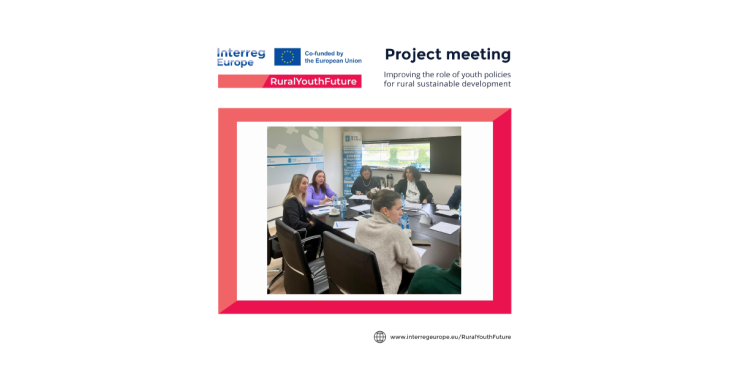Galician Stakeholders Convene to Share Best Practices

On February 26th a meeting was held in Santiago de Compostela between the Galician stakeholders of the RuralYouthFuture project, led by the Directorate General of Youth, Participation and Volunteering, attended by representatives of the following entities Galicia Europa Foundation (project leader), Directorate General of Foreign and EU Relations, Directorate General of Funds, Directorate General of Employment, Directorate General of Family, Agader, Gain, University of Vigo, Association of Young Entrepreneurs of Ourense, Federation of Don Bosco Youth Centers of Galicia, Chamber of Commerce of Santiago de Compostela and the Amicos Association.
The agenda of the day consisted of a first part in which to share the good practices observed in the study trip to Latvia (3-5 October 2023) and a second part in which the Galician stakeholders presented their proposals of good practices that they had been collecting during these months. Finally, there was a space in which to share the progress made with documentation related to the State of Art.
The stakeholders of the RuralYouthFuture project met to share and discuss the experiences and lessons learned during the study visit to Latvia, carried out from 3 to 5 October last year. This meeting, which counted with the participation of several key entities and organizations in the field of rural development and youth, was an opportunity to gather information on the best practices of Latvian partners, as well as to assess how these can be adapted and applied in the Galician context.
During this first part, several projects identified in Latvia were highlighted, which serve as inspiration to promote rural development in Galicia. Among these initiatives were Go Remote and Countryside Will Be, which focused on issues such as rural entrepreneurship, employment opportunities, and innovative education, thus addressing the challenges in rural areas.
It is worth noting that the project has already started to give results and opportunities for the stakeholders, so the Chamber of Commerce of Santiago de Compostela has just presented a project with the creators of the GoRemote platform and other Galician entities, and they are also collaborating in the preparation of another project with Latvian entities.
In addition to sharing Latvian experiences, the Galician stakeholders also presented their own best practice proposals to strengthen rural development in Galicia. These proposals include initiatives such as the creation of housing in rural areas, the expansion of university programs in rural areas, and the implementation of university micro-credentials, among others.
Some of those mentioned at the meeting were:
- European project on Livings Labs, Microcredentials Program and Rural
- Campus (Faculty of Education of the Campus of Ourense, UVIGO)
- Model Villages (AGADER).
- Rural Youth of Europe (Amicos)
- Erasmus for Entrepreneurs (Chamber of Commerce).
- Innogando and Conecta Hub (Gain)
- Integrated Employment Program (Amicos)
- Polos de Emprendemento (Directorate General of Employment)
- Mentor Program (Directorate General of Family)
Finally, a space was dedicated to sharing the progress made in compiling information and drafting the State-of-the-Art document, which will provide an overview of current practices in the field of rural development in Galicia and its population and present the concerns, benefits, and opportunities to the rest of the project partners and the Interreg Europe program.
The meeting represented an important step in the RuralYouthFuture project, reaffirming the commitment of Galician stakeholders to work together to promote sustainable development and prosperity of the population in rural areas of Galicia. All those present were in great harmony and reaffirmed a very positive working feeling.
RuralYouthFuture focuses on six policy instruments at municipal, regional and national level to meet the common challenge of responding to the needs of the population of rural areas, which are experiencing a growing population decline. It will count on the participation of different partners from seven European countries: Spain, Bulgaria, Slovenia, Lithuania, Portugal, Estonia, and Belgium. The project has a financing of 1.6 million euros, under the Interreg Europe Program, co-financed with ERDF funds.
